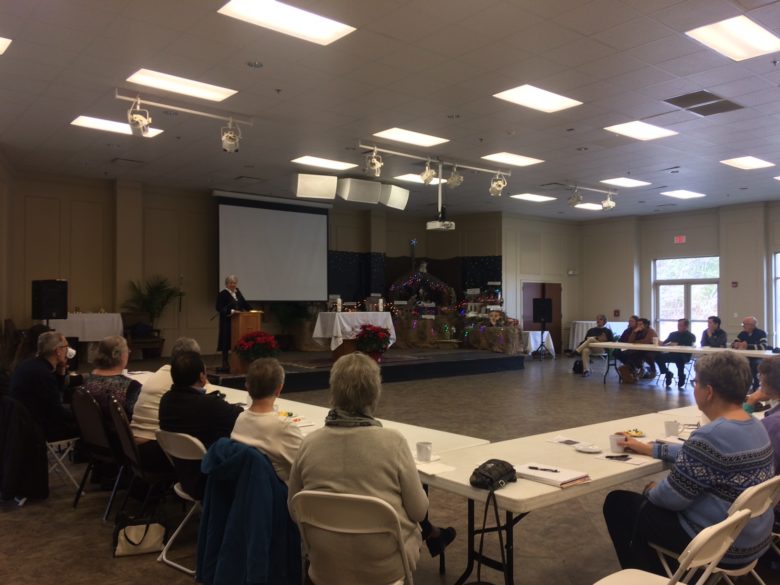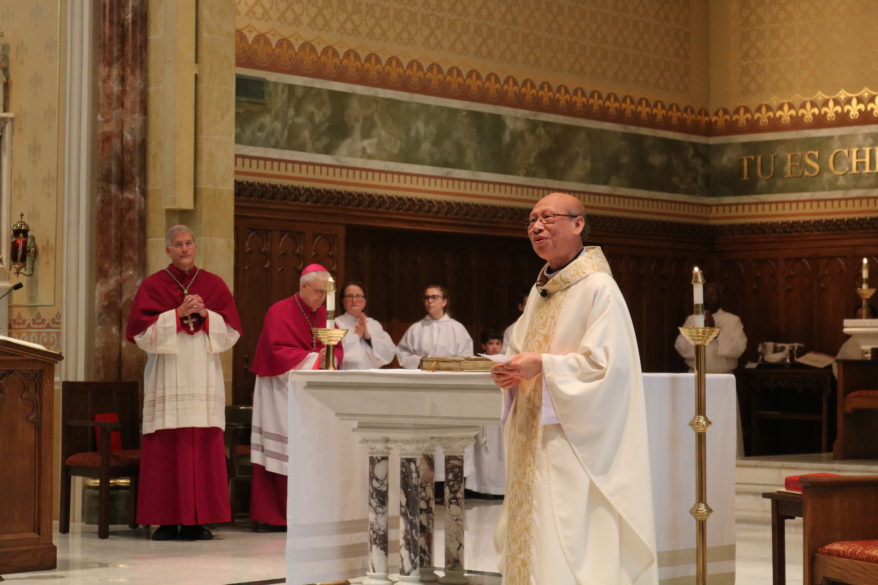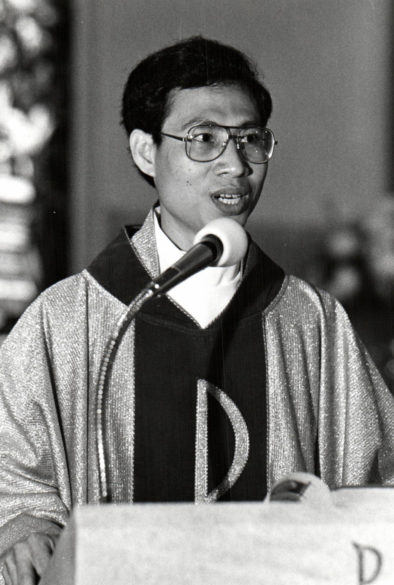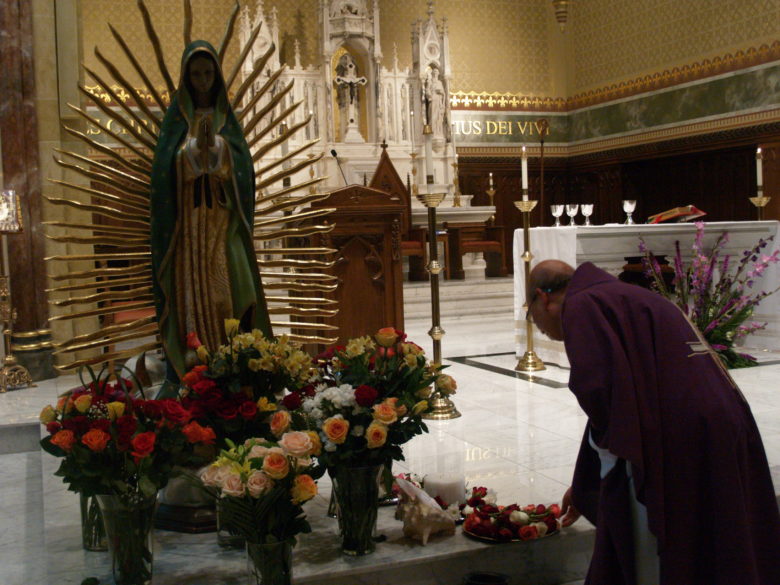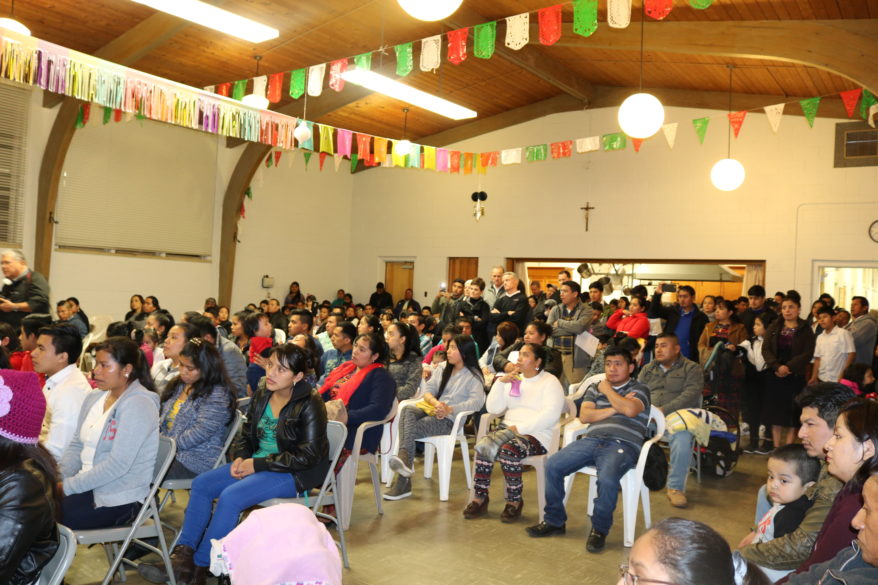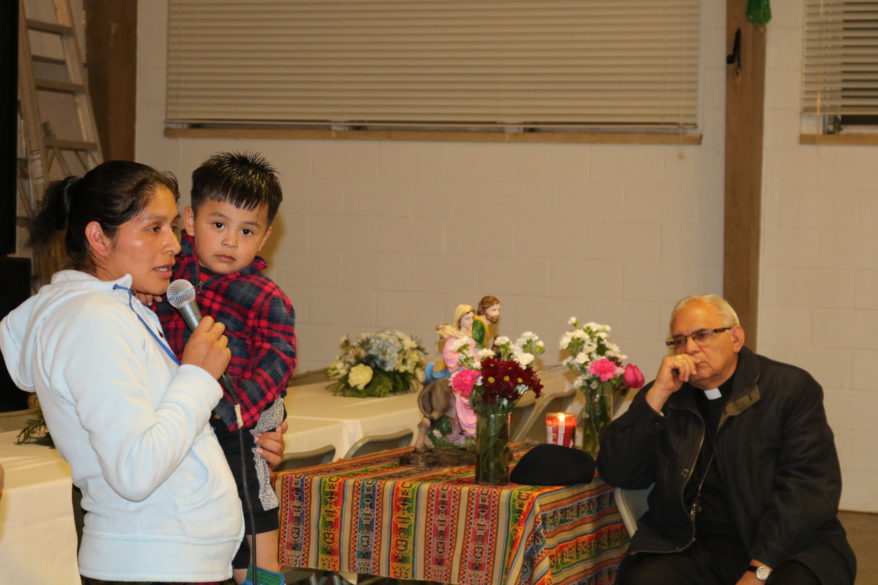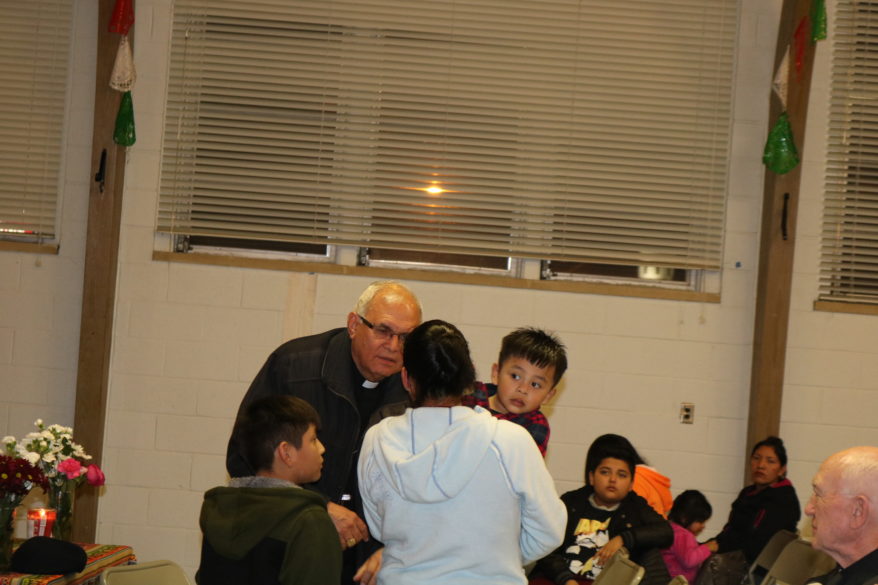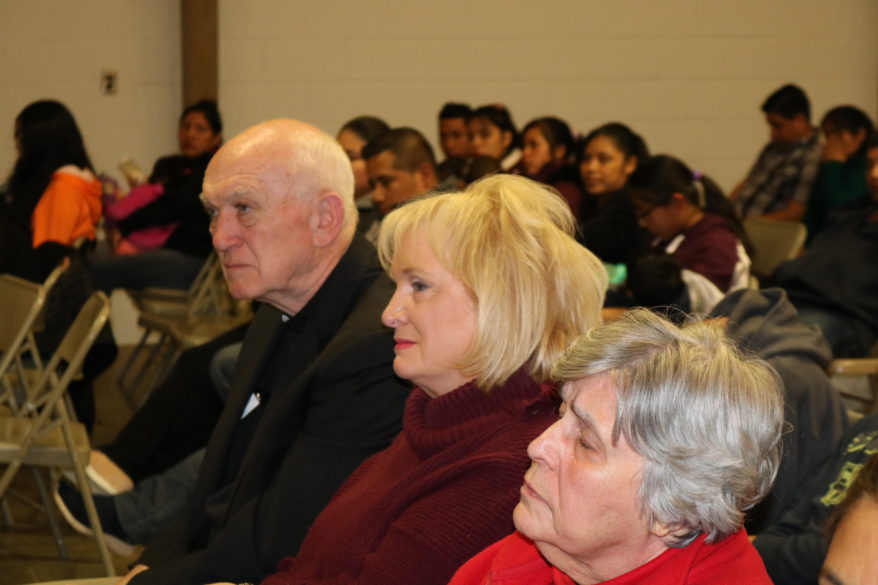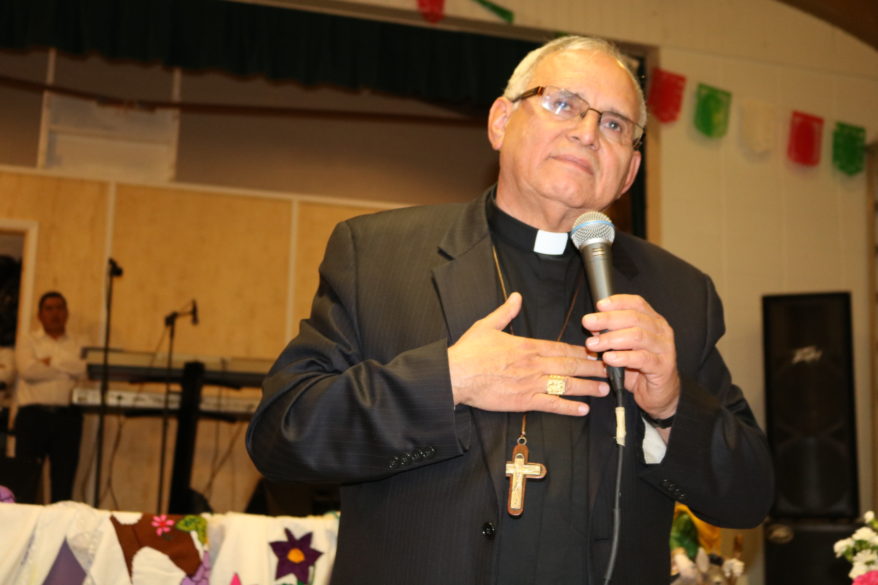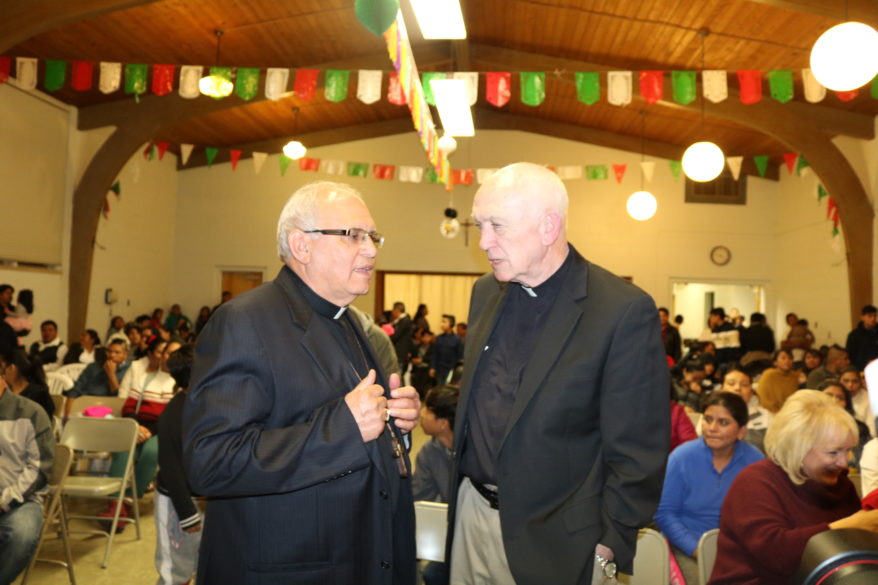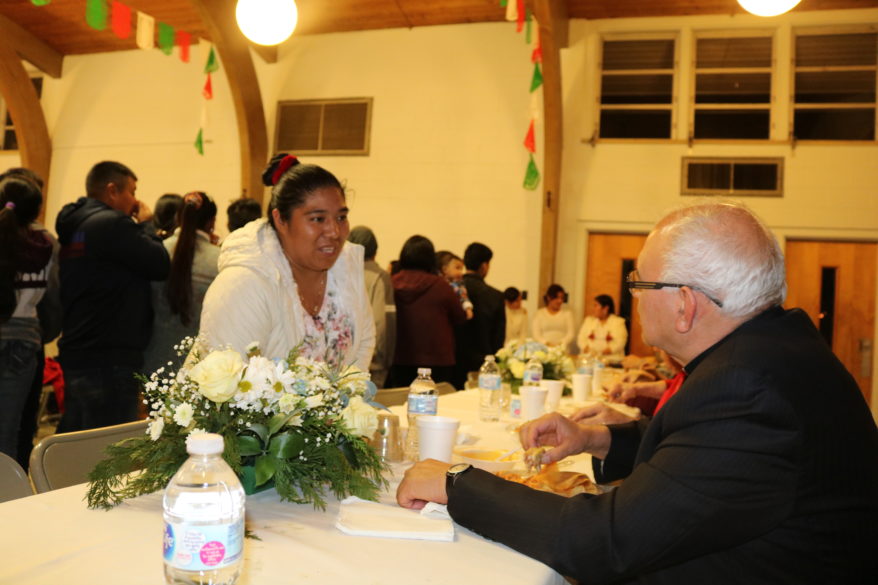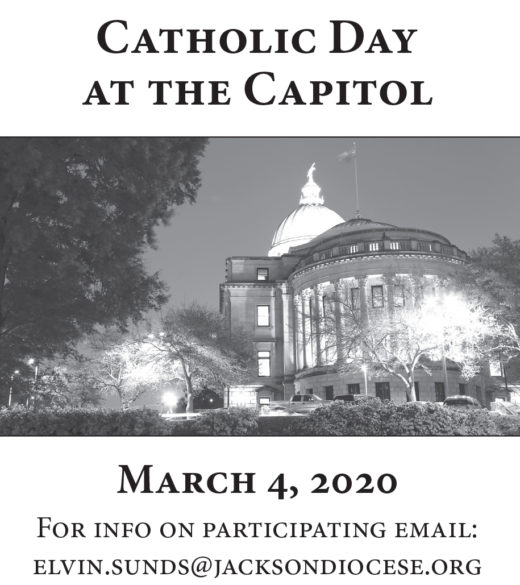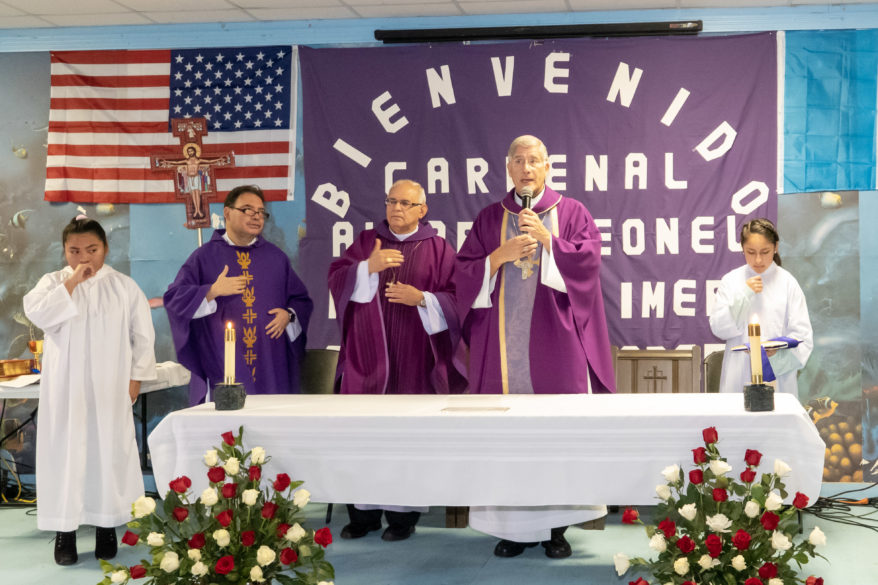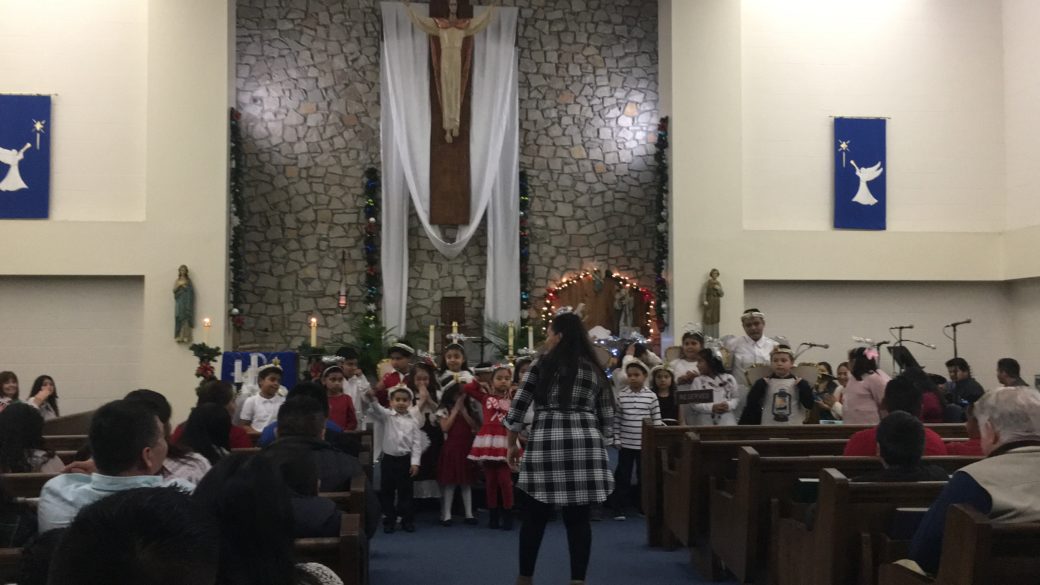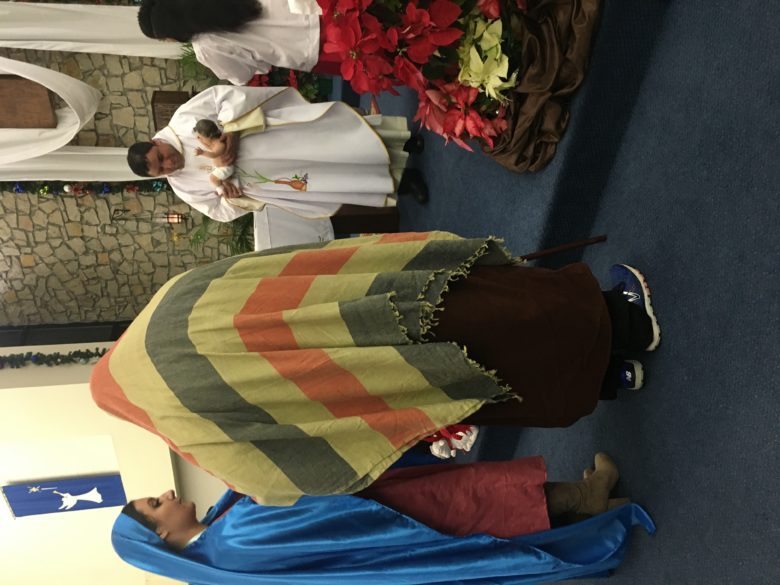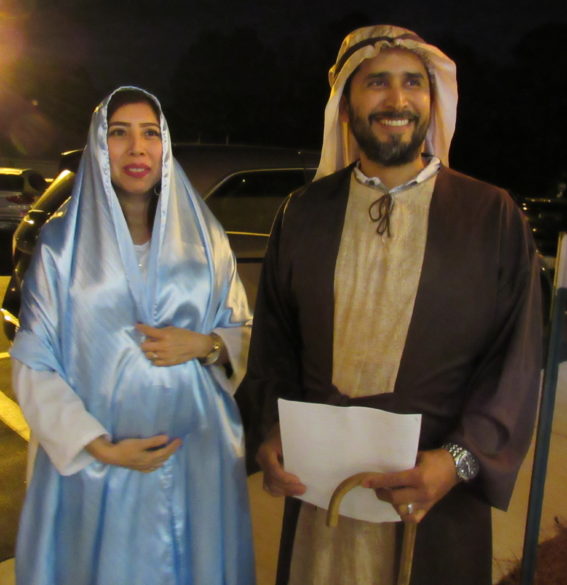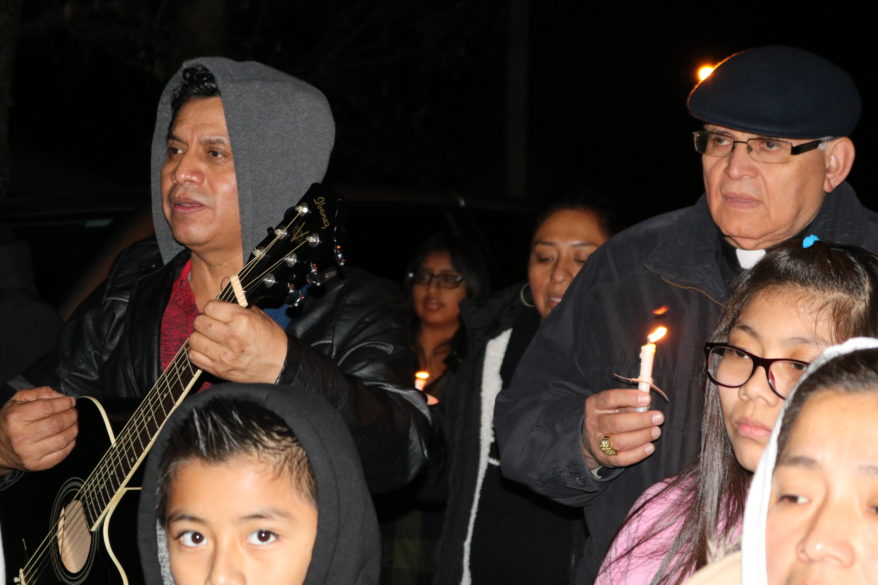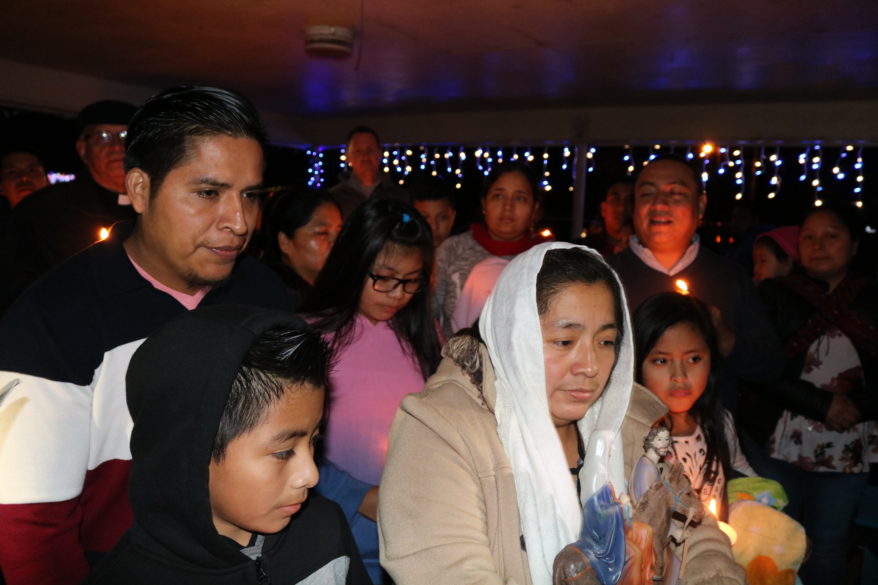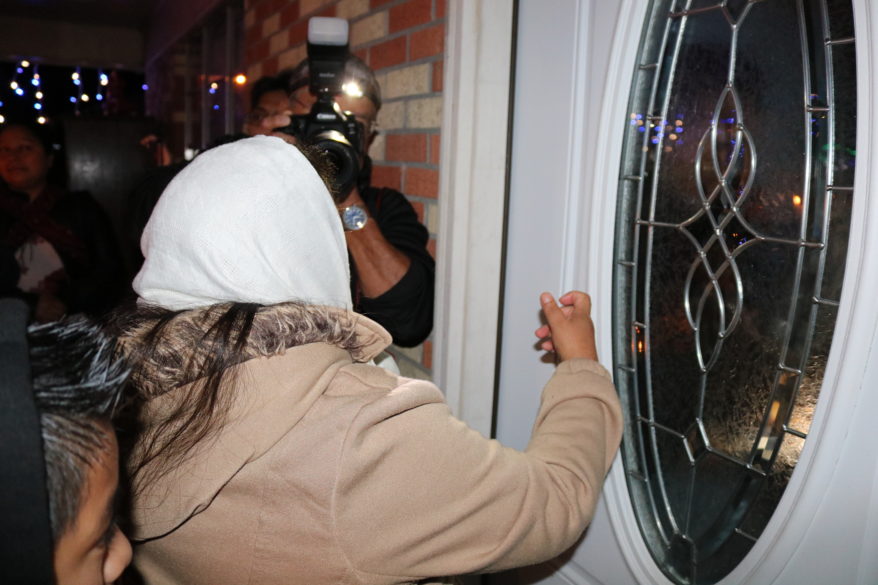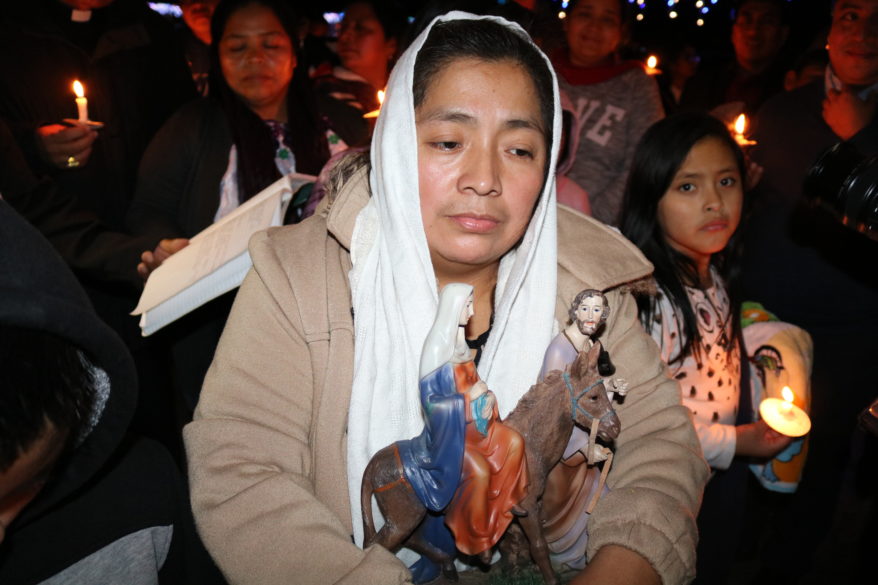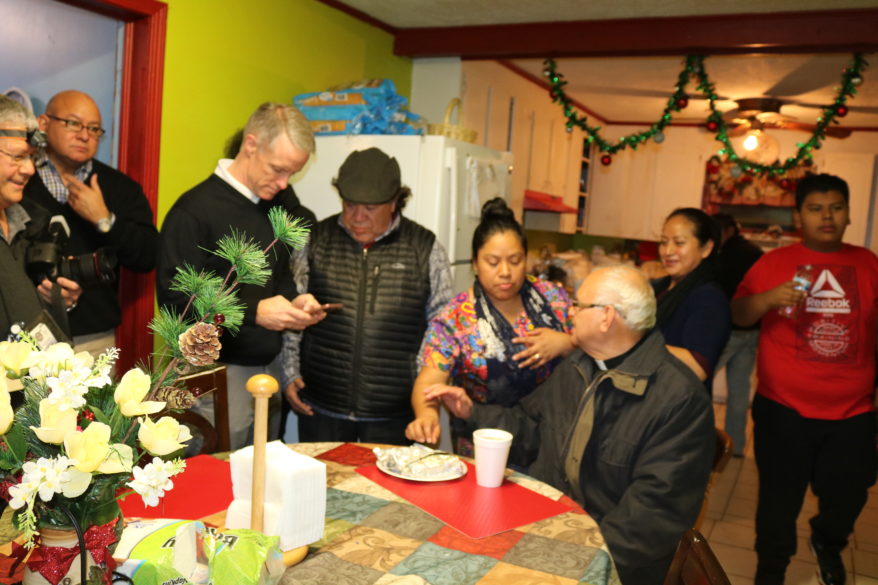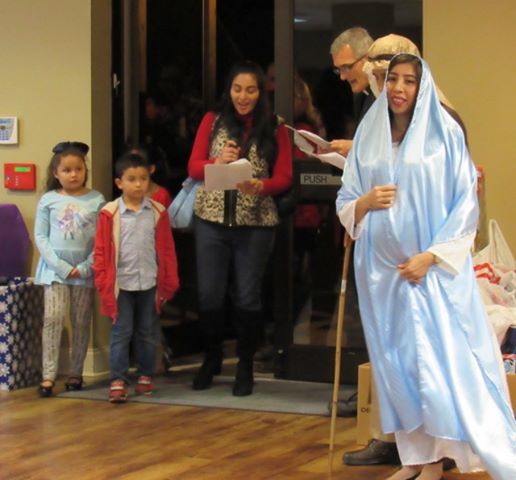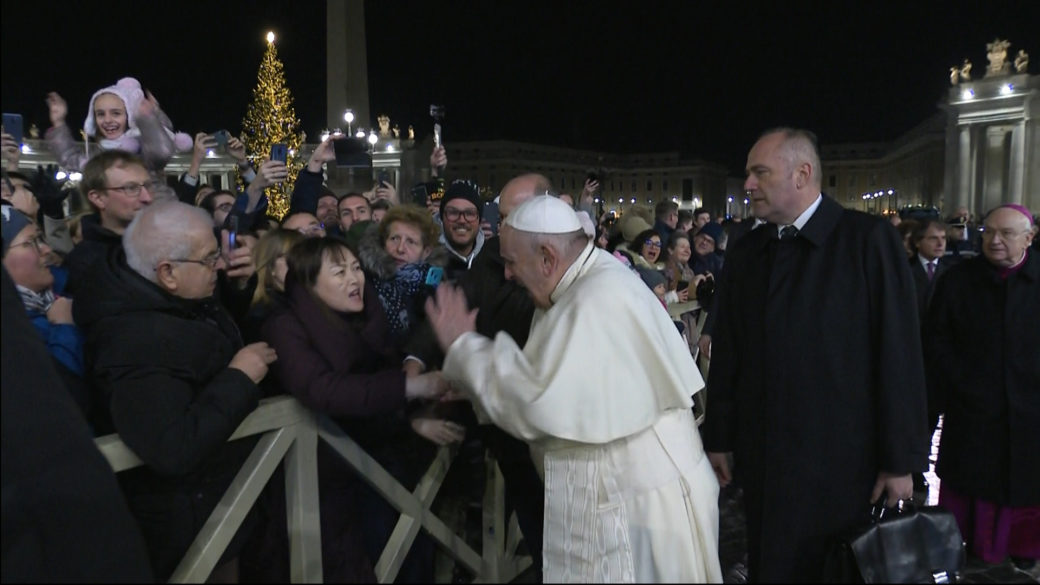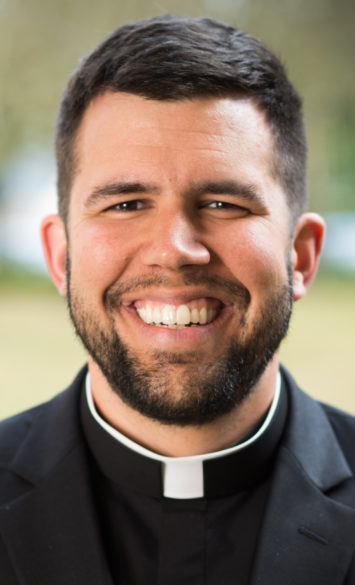By Berta Mexidor and Joanna Puddister King
JACKSON – “God does not abandon you” was the message of Cardinal Alvaro Ramazzini Imeri during his visit to the Diocese of Jackson between Dec. 19-21, 2019. This message was received by hundreds, mostly immigrants, who attended his talks in the communities of Carthage, Canton and Forest that were affected following the immigration raids in August 2019 that resulted in more than 700 detentions, many of whom are of Guatemalan decent.
Raised to the rank of cardinal in October by Pope Francis, Cardinal Ramazzini is from Huehuetenango, Guatemala and is known for his aid and human rights advocacy for the poor of Central America. During his tour of love and hope, Cardinal Ramazzini talked to many about of the economic situation in Guatemala, which causes many to leave to seek a better life and encouraged those affected in faith, while many face the legal process of deportation from the United States.
“Being a Cardinal opens more windows of communication with more people … to serve better in the last stage of my life and especially the service to the most marginalized people in the world,” said Cardinal Ramazzini.
At a news conference at the Chancery office in Jackson with Bishop Joseph Kopacz, Joe Boland, vice president of mission for Catholic Extension and Father Roberto Mena, ST of St. Michael Forest on Dec. 20, Cardinal Ramazzini explained his position with regard to the U.S. government and thanked those around the country for their show of solidarity and all of the humanitarian assistance received from Catholics and non-Catholics alike to those affected by the raids.
At the conference, Cardinal Ramazzini said he advocates for a “migration policy with a human face,” to solve the economic conditions that force many to leave their home country and to stop the custom where immigrants are treated as criminals, without having a criminal record.
Cardinal Ramazzini stated that immigration laws in the U.S. are from many previous administrations and he evaluated with the same weight the governments of Barack Obama and Donald Trump when applying immigration laws with “legality and little justice.” Additionally, he denounced the inhumane treatment of immigrants when they have been handcuffed in their workplaces in front of colleagues and families.
At the same time, Cardinal Ramazzini strongly criticized the Guatemalan government for their poor economic model that leaves natives on the verge of despair. During his advocacy work over the years, he has expressed to Guatemalans the danger of putting themselves and their children in the hands of “polleros” or “coyotes,” otherwise known as smugglers.
Following the news conference, Cardinal Ramanizzi met with parishioners at St. Anne Carthage, Sacred Heart Canton and St. Michael Forest. At each of the gatherings he thanked the priests tending to their flocks – Father Odel Medina, ST, Father Michael O’Brien and Father Roberto Mena, ST. The priests also thanked him for his visit and explained their work ahead with parishioners and their families affected by the raids, which includes much financial support since many are unable to work, in addition to consoling parishioners through the trauma experienced due to the raids.
During his conversation with the communities, some affected families shared what they suffered in the moment of detention, the shame and uncertainty and the moment of facing federal court; yet also their hope for the future. Also many communicated to Cardinal Ramanizzi their gratitude for the work of the priests, religious, volunteers and Catholic Charities, who have made this time a little less difficult and, for which, they have not lacked food, aid and financial payments to keep a house and utility services on for their families.
Cardinal Ramazzini mentioned that the many people who have helped the affected families, is the proof that God does not leave people alone. “In the moments of trial, the solidarity and help of others, tested greater that God does not abandon us,” he said on his visit.
During his talks with each of the parishes as a whole, Cardinal Ramanizzi compared the situation of immigrants arrested in the raids with Job, who lost everything until he was left ill and alone.
“This book of Job, can help us all when we go through difficult times. And Job asks God why he is suffering. And the answer from God was and is ‘I have not abandoned you, I just wanted to see if you were faithful.’ … When everything is going well, we forget God. It shouldn’t be that way, but we are human beings.”
“We must be sure that God does not abandon us, but it is very easy to say that when everything is fine, but after being in jail, or seeing a family member being caught and passing difficult moments, people always ask themselves in a situation like that. ‘God, if you are love, why do you allow things like this to happen?’ The temptation of despair, of the lack of trust in God, is very great, … I ask the Lord to not let you fall into that temptation because, despite the difficult time, God does not abandon us,” Cardinal Ramazzini emphasized.
In addition to the talks, Cardinal Ramazzini took part with parishioners asking for Posada (Inn) at St. Anne Carthage and St. Michael Forest, a tradition before Christmas that represents the Holy Family in search of shelter, when they looked for an inn until they found a place in a stable. It was there that the son of God was born, “to teach us that surrender to others makes us happy,” said Cardinal Ramazzini.
He added that being Christian is being consistent with the faith and helping each other “… if [you] believe that God is love, there is the way forward.”
Continued support for impacted families
While on his visit to Mississippi, Cardinal Ramazzini received continued commitment of members of Catholic Charities Jackson, Mississippi Center for Justice, the Jesuit Social Research Institute, Mississippi Immigrants Rights Alliance (MIRA) and other community groups, who have mobilized volunteers to distribute aid, assist families with transportation to visit their detained relatives and translation services for the courts.
Chicago-based non-profit Catholic Extension, which sponsored Cardinal Ramazzini’s pastoral visit, announced their new mental health initiative through Extension’s Holy Family Fund to provide counseling and other services for families affect by the raids at the press conference held at the Chancery office on Dec. 20.
The initiative is a partnership between Southeast Pastoral Institute (SEPI) of Miami and Catholic Extension’s Holy Family Fund, a relief program that assists families in the United States who are financially dependent on a parent that has been detained or deported for immigration reasons. Through the fund, Catholic Extension has been instrumental in ensuring the flow of aid to support delivery of basic resources to the churches serving the humanitarian and spiritual needs of the families in Mississippi affected by the crisis caused by the ICE raids.
“Raids like the one we saw in Mississippi cause massive chaos for these families,” said Joe Boland, vice president of mission for Catholic Extension. “We need to continue to ensure that they are getting the resources and services they need to address the long-term suffering caused by a system where parents are forcibly removed from their children, and that is what we are aiming to do.”
The mental health initiative is set up to ease the lingering trauma and anxiety created for children separated from a parent due to detention or deportation. This endeavor will include counseling, pastoral care, mental health aid and other services to address the psychological consequences suffered by families who have been separated.
During the news conference, Boland described receiving a letter from an 8-year-old boy from Morton after the raids. The boy’s mother had been detained for two months before being released. The child wrote, “Thank you for remembering us, for not abandoning us. … Going forward don’t forget about us because it’s the children who suffer the most.”
Donations to the Holy Family Fund to help launch and sustain this new mental health program can be made at catholicextension.org/family.
